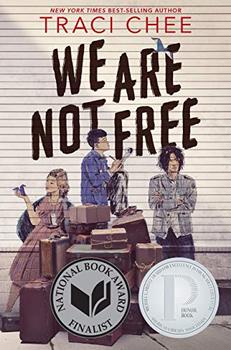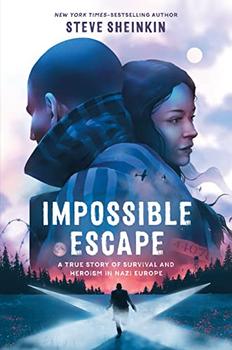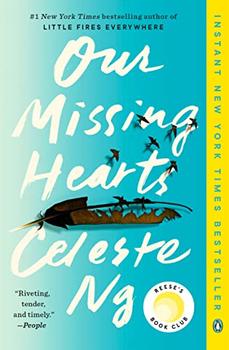Summary | Excerpt | Reading Guide | Reviews | Beyond the book | Read-Alikes | Genres & Themes | Author Bio

"All around me, my friends are talking, joking, laughing. Outside is the camp, the barbed wire, the guard towers, the city, the country that hates us.
We are not free.
But we are not alone."
From New York Times best-selling and acclaimed author Traci Chee comes We Are Not Free, the collective account of a tight-knit group of young Nisei, second-generation Japanese American citizens, whose lives are irrevocably changed by the mass U.S. incarcerations of World War II.
Fourteen teens who have grown up together in Japantown, San Francisco.
Fourteen teens who form a community and a family, as interconnected as they are conflicted.
Fourteen teens whose lives are turned upside down when over 100,000 people of Japanese ancestry are removed from their homes and forced into desolate incarceration camps.
In a world that seems determined to hate them, these young Nisei must rally together as racism and injustice threaten to pull them apart.
In this novel, which begins in 1942, 14 Japanese American teenagers are ripped from their lives in San Francisco and relocated to detention camps scattered across the western United States. Chee draws on the experiences of her own grandparents to recreate events and bring to vivid life characters with a wide range of personalities and versions of the broken American dream. With a more individual focus, Traci Chee offers a wider, multifaceted picture of this shameful episode in America's past...continued
Full Review
(753 words)
This review is available to non-members for a limited time. For full access,
become a member today.
(Reviewed by Catherine M Andronik).
 In Traci Chee's young adult historical novel We Are Not Free, which follows 14 Japanese American teens from San Francisco through World War II, two young men in Topaz detention camp, Mas and Twitchy, decide to volunteer for the army. Japanese American men were unable to serve until early 1943; the American government had considered them enemy aliens since the bombing of Pearl Harbor. Director of the Office of War Information Elmer Davis urged President Franklin D. Roosevelt to reverse the ban on soldiers of Japanese descent in a 1942 letter, in part for propaganda reasons, but also because he believed most Japanese Americans were loyal citizens and deserved to serve if they wished.
In Traci Chee's young adult historical novel We Are Not Free, which follows 14 Japanese American teens from San Francisco through World War II, two young men in Topaz detention camp, Mas and Twitchy, decide to volunteer for the army. Japanese American men were unable to serve until early 1943; the American government had considered them enemy aliens since the bombing of Pearl Harbor. Director of the Office of War Information Elmer Davis urged President Franklin D. Roosevelt to reverse the ban on soldiers of Japanese descent in a 1942 letter, in part for propaganda reasons, but also because he believed most Japanese Americans were loyal citizens and deserved to serve if they wished.
But once they enlisted, Japanese American soldiers were ...
This "beyond the book" feature is available to non-members for a limited time. Join today for full access.

If you liked We Are Not Free, try these:

by Steve Sheinkin
Published 2023
From three-time National Book Award finalist and Newbery Honor author Steve Sheinkin, a true story of two Jewish teenagers racing against time during the Holocaust - one in hiding in Hungary, and the other in Auschwitz, plotting escape.

by Celeste Ng
Published 2023
From the #1 bestselling author of Little Fires Everywhere, comes one of the most highly anticipated books of the year – the inspiring new novel about a mother's unbreakable love in a world consumed by fear.
Nearly all men can stand adversity, but if you want to test a man's character, give him power.
Click Here to find out who said this, as well as discovering other famous literary quotes!